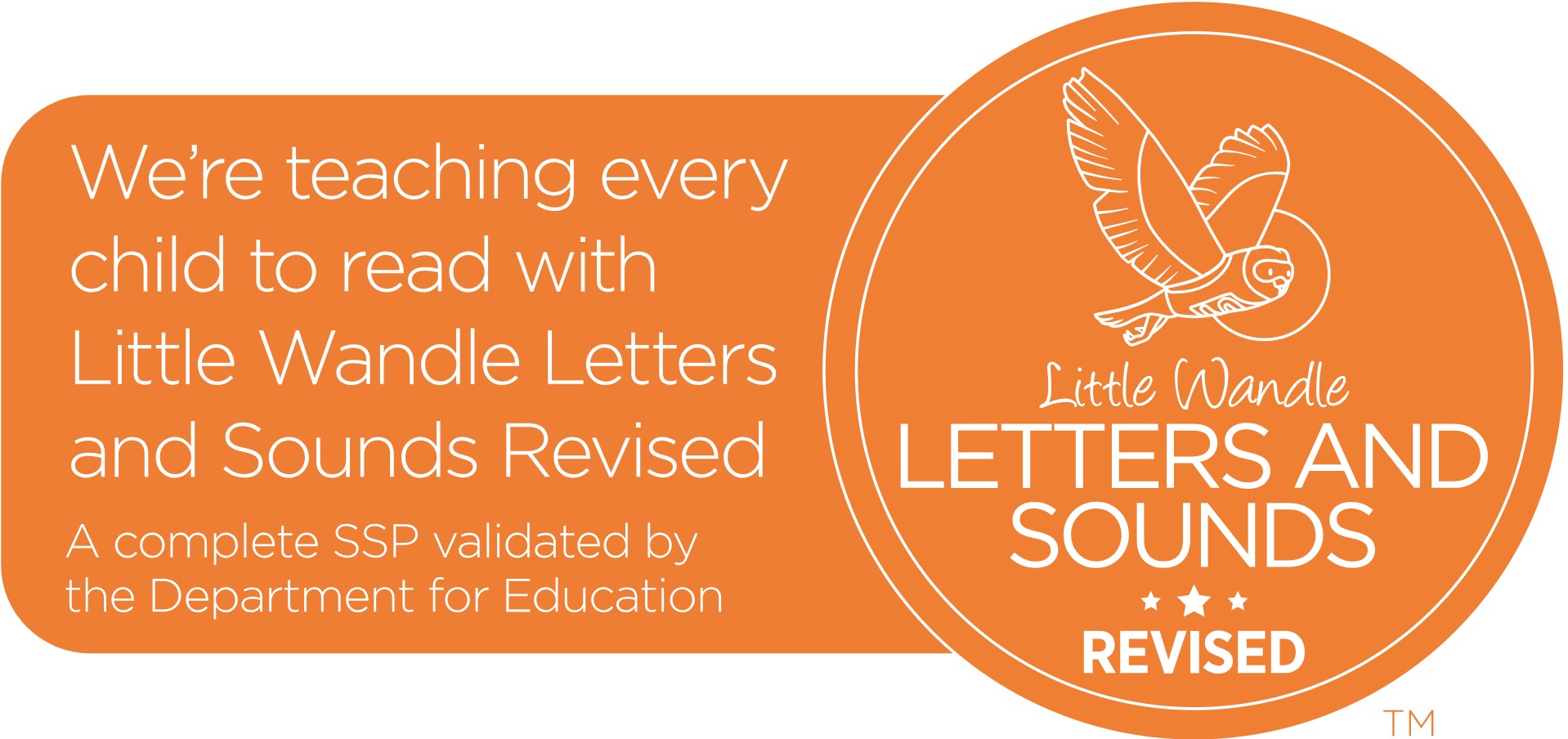Phonics
At Blackheath Primary School, our phonics programme is based upon the progression of ‘Little Wandle Letters and Sounds Revised’ which is a comprehensive phonics scheme that was validated by the Department for Education and Skills in 2021.

We teach phonics for 30 minutes a day. In Reception, we build from 10-minute lessons, with additional daily oral blending games, to the full-length lesson as quickly as possible. Every Friday, we review the week’s teaching to help children become fluent readers.
Phonics in Nursery
Our setting has chosen to use the Little Wandle Foundations for Phonics programme to give every child the best possible start to their reading journey. We build the foundations for children to succeed with phonics in Reception. We do this using Little Wandle’s Tuning into sounds and Rhyme time activities.
In our setting, we:
- Talk about different types of sounds
- Play listening games, for example, Voice sounds.
- Sing rhymes regularly
- Leave gaps at the end of the line for children to complete the rhyme, for example, ‘Hickory dickory dock, the mouse ran up the ______.’
- Clap the number of syllables in different words
- Highlight long and short words.
What can you do to support your child at home?
- Draw your child’s attention to different sounds around them, for example, ‘Listen to the loud noise! It sounds like an engine.’
- Read lots of rhymes and sing songs
- Pause for your child to complete the rhyme
- Make up silly rhymes, for example, ‘Let's leave the house, little mouse!’ or 'The little blue boat...likes to float'
- Clap the syllables of words
- Talk about long words, for example, ‘Ooh, that’s a long word! Let’s clap it out.’
- Work out how many syllables there are in your family names.
Click below to access Nursery Rhyme videos that will help your child
Little Wandle Nursery Rhyme Videos
Little Wandle Nursery Rhyme Lyrics
Phonics in Reception
Formal phonics teaching begins in Reception from Week 2. In the Autumn term, the children will be taught phonics for 10–15 minutes every day. They will learn to say and read all the single letter sounds (for example, s and m) and some consonant digraphs. A digraph is where two letters make one sound (for example qu and sh). We will work really hard to teach your child to blend sounds together to read words. They will start reading wordless books and, when they can blend sounds into words, will read Phase 2 books. We will provide your child with daily additional practice if they need it.
From the Spring term onwards, we will be teaching Phase 3 sounds. These are common vowel digraphs (two letters making one sound, for example ‘oa’) and trigraphs (three letters making one sound, for example ‘igh’). Spotting these digraphs and trigraphs is key to cracking this next stage in the reading journey.
This term, phonics lessons run for 20–30 minutes daily. Your child will learn the Phase 3 vowel digraphs and trigraphs on their own and in words. They will continue to be taught the tricky words that they will read in their books.
They will be reading either Phase 2 or Phase 3 decodable books, depending on where they are most secure. Some children will use the blending practice books for additional practice with blending sounds into words. Your child will only read books containing sounds they are confident with.
What can you do to support your child at home?
- Read to your child daily – books you can enjoy together. The love of reading books we send home are a great place to start!
- Listen to them practise reading their phonics book to develop their fluency.
- If you can, get a set of ‘Little Wandle at Home’ phonics flashcards (from collins.co.uk/pages/little-wandle-athome) and play the suggested games.
- Ask your child’s teacher if you need extra help with supporting your child – that’s what we’re here for!
Watch the videos below for support with pronunciations of the different phonemes or download the grapheme sheets.
Autumn 1 - Phase 2
Autumn 2 - Phase 2
Spring 1 - Phase 3
Phonics in Year One
Your child is on their journey to becoming a skilled reader. In Year 1, children will learn the remaining graphemes in the Little Wandle Letters and Sounds Revised programme. These are alternative spellings for the sounds that they already know. The children will become more fluent readers and will read increasingly challenging texts.
In Year 1, children are taught a 30-minute phonics lesson every day. They will also have an opportunity to apply their phonic knowledge to reading a book (matched to their level), at least three times a week. Your child may need daily additional practice to help secure their learning. In June, your child will take the statutory phonics screening check. This is a national assessment which assesses your child's ability to decode to read words using the grahemes that have been taught.
What can you do to support your child at home?
- Listen to your child practise reading their phonics book to develop their fluency.
- Read to your child daily – choose books that you can enjoy together. The love of reading books we send home are a great place to start.
- If your child is unsure of a word, ask them to sound it out and then blend.
- Ask them if they can spot any digraphs (two letters, one sound) or trigraphs (three letters, one sound) before decoding the word.
- Never ask your child to guess words using the pictures or initial sounds as clues. If they are really struggling just read the word to them.
- Ask your child’s teacher if you need extra help with supporting your child – that’s what we’re here for!
Watch the video below for support with pronunciations of the different phonemes or download the grapheme sheets.
Year 1 - Phase 5
Phonics in Year Two
Year 2 children will begin the year by revisiting phase 5 and other previously taught phases to ensure all children are completely confident with applying these GPCs in both their reading and also their writing. If any children still require support with learning phonics when they start Year 2, they follow a rigorous intervention programme called Little Wandle Rapid Catch Up. 
This ensures that any phonetic gaps are covered and they keep up with their peers. No child is left behind!
Key Documents
Blackheath phonics and early reading policy
Little Wandle Phonics Progression Overview
Year 1 Phonics Screening Check information
Useful Links






